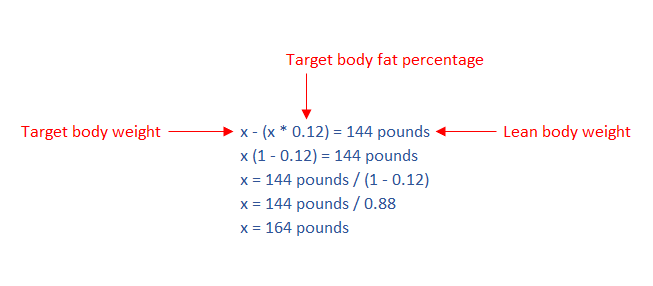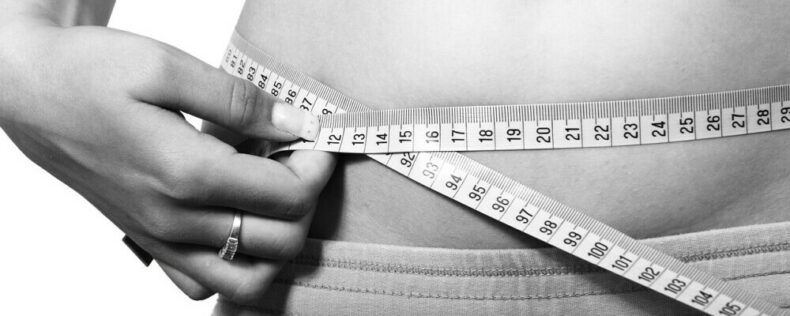Even though lots of people try to diet at some point in their lives, most of them don’t know how to do it properly. They might not know how to change their dietary habits to achieve weight loss, or they eventually give up because they might not have any expectations for how long to maintain their diet. As a result, they end up trying over and over again without much meaningful progress. I’ve previously discussed topics like what you should do to lose weight and tips for sticking to a diet. However, the question I have yet to address is how long should a diet last?
The answer obviously varies from person to person, but the steps to get to this answer are pretty standard. First, you should understand what a reasonable rate of fat loss is for a typical person. Then, you’ll need to figure out how many pounds you want to lose, which will give you an estimate of how long the dieting process will last.
How Fast Should You Lose Weight?
For the average person, a healthy rate of weight loss is about 1-2 pounds per week. This helps you avoid any health risks associated with drastic changes to your body and also minimizes muscle loss in the process.
How do you achieve such a rate? Well, past findings have found that a pound of fat equates to about 3,500 calories. This means that to lose a pound of fat every week, you’d need to maintain a daily calorie deficit of 500 calories. While it’s since been shown that this isn’t entirely accurate, and certainly isn’t a fixed rule as we’ll discuss later, it’s still a good starting point when you’re just beginning your diet.
It’s also the case that not everyone needs to lose weight at this rate. For example, if you want to preserve as much muscle and strength as possible during your cut, and are fine with dieting for a longer period of time in order to do so, you can instead try to lose weight at a more gradual rate of half a pound per week.
How Many Pounds Do You Want to Lose?
Once you decide on a rate of weight loss that you’re comfortable with, the next step is to figure out how much weight you want to lose. This doesn’t simply involve coming up with a number out of thin air, or even worse, having no goal in mind at all, as trying to diet with no direction doesn’t tend to be very sustainable.
Determining how much weight you want to lose will involve figuring out your current body fat percentage and then the body fat percentage you want to achieve. An easy way to do this is to look up a body fat percentage comparison picture, see where you roughly fall, and then see where you’d ideally like to be. Even if you own a scale that measures body fat, it’s best to still compare with images to see how accurate that measurement is and to then decide how much weight you want to lose. It’s not an exact science, but it’s the easiest way to come up with a good estimate without the use of complex measurements, scans, and tests.
For example, if you currently weigh 180 pounds and estimate your body fat percentage to be around 20%, this means that 20% of your weight, or 36 pounds, comes from fat. As such, your lean body mass, which is your weight if you had no fat, is around 144 pounds (180 pounds – 36 pounds). If you decide you want to get down to 12% body fat, you just need to do the following calculation to come up with your target weight:

This means that with a target weight of 164 pounds, you need to lose 16 pounds. This means you would need to diet for about 8 weeks at a rate of 2 pounds per week, 16 weeks at a rate of 1 pound per week, 32 weeks at a rate of 0.5 pounds per week, and so forth.
Complicating Factors
Now you have an idea of how long you should expect to maintain your diet. However, this is only a rough estimate because losing weight is never that linear and straightforward. There are a few complicating factors that will ultimately cause your rate of weight loss to vary as you go.
For the first few days or even the first week of when you begin to eat at a calorie deficit, you’ll probably experience quite a significant drop of several pounds. As exciting as that may be to see, most of this decrease won’t actually be fat, but rather water weight. After a bit, your weight will stabilize and decrease at more gradual rate of 1 pound per week or whatever you initially set out to achieve.
From there, if you can keep up a consistent daily calorie deficit, you’ll probably make steady progress for several weeks. Over time, however, you’re going to notice that you’re losing less and less weight, even though you’re still eating the same amount. At some point, you may stop losing weight altogether, at which point you’ve hit a weight loss plateau.
This happens because as your body weight decreases, your basal metabolic rate (BMR), or the amount of calories your body needs to sustain itself, will also decrease. In addition, your metabolism may slow down as you diet, which also decreases the rate at which you burn calories. In the end, since your body will require less calories, you may need to further reduce your total calorie intake in order to continue losing weight.
However, reducing your calorie intake too drastically is also dangerous, as your body won’t get the nutrition it needs if you’re eating too little. Therefore, another way to continue enhancing your calorie deficit without significantly altering your calorie intake is to increase your energy expenditure through increasing the amount of time and intensity of your workouts. Regardless of whether you choose the approach of less food, more exercise, or some combination of both, monitor your weight loss closely and be ready to adapt your routine as needed.
Take the Guesswork Out of Dieting

As you can see, approximating how long your diet should last isn’t really that hard. It doesn’t require an incredibly precise approach, and even then your estimate probably won’t be completely accurate. However, having a rough idea and being able to set basic expectations is still critical for reaching your weight loss goals.
Like I stated in the beginning, people who don’t set goals or establish a timeline for themselves often fail to adhere to a diet plan for very long. Frankly, this is understandable given that without an end goal or any way to measure your progress, there isn’t much real motivation to stick to a diet, nor are there any actionable steps to make sure it remains effective. When you just blindly run with no direction and no finish line, at some point you’re bound to get tired and give up.
Fortunately, now that you know how to build a concrete dieting plan and how to adapt it as you go, this will hopefully be the time you finally succeed and conquer your fitness goals.

